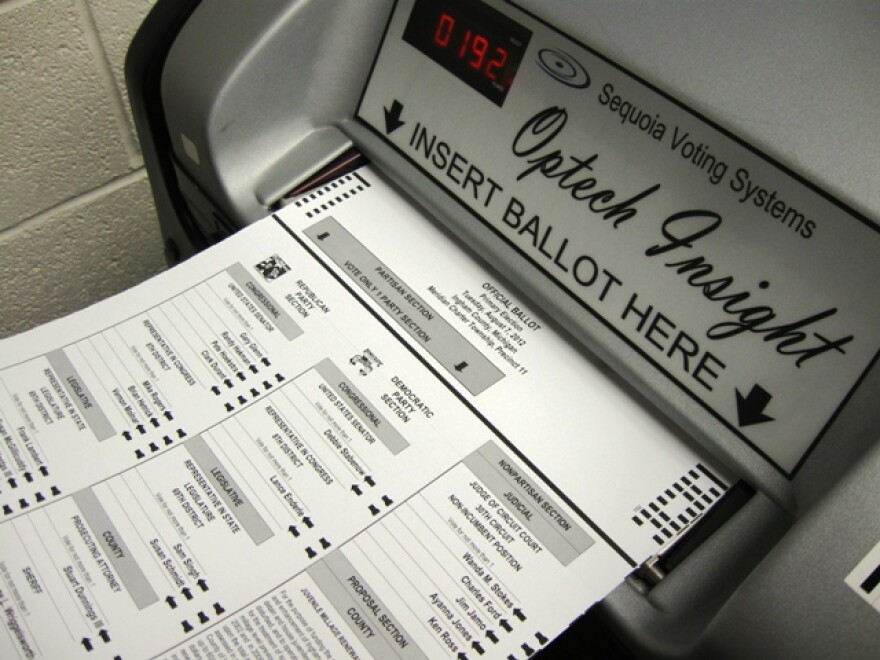The state of Michigan has reached a court settlement that allows voters to take pictures of their ballots and post them on social media.
The deal says voters can snap and share pictures of their ballots as long as it’s done in the privacy of the voting booth.
Patrick Jaicomo is the attorney representing the voter who sued in federal court to overturn the ban. He says this a victory for political free speech.
“You can say you voted," said Jaicomo. "You can say who you voted for. But a photograph of your ballot with a box checked is probably the most powerful way you can communicate those things to someone else.”
The settlement allows voters to take pictures of their ballots. But the Secretary of State’s office says that voters still cannot take selfies of themselves with their ballots.
Like my vote? Michigan voters are free to photograph their ballots in the voting booth, under a lawsuit settlement announced Wednesday.
The state's ban on displaying a completed ballot had been around since 1891. The law was aimed at stopping pressure from political parties, which distributed ballots at that time and compelled people to vote for certain candidates.
Joel Crookston, a voter in the Kalamazoo area, photographed his ballot in 2012 and posted it on social media. Although he wasn't challenged by election officials, a lawyer warned him that it was illegal. So Crookston sued in 2016 to overturn the ban, arguing that it violated free speech rights.
Under the settlement, voters will be allowed to photograph their marked ballots but still won't be allowed to photograph themselves in a polling place.
"It's really about taking a picture, leaving a polling place and posting it online," said Crookston's attorney, Stephen Klein. "There haven't been problems in states that have embraced this. People are just celebrating their vote."
Secretary of State Jocelyn Benson issued a statement calling the settlement fair.
"We reached a resolution that allows voters to have a full opportunity to express themselves, while at the same time ensuring that voters retain the ability to vote in private and without disruption or discomfort," said Benson, a Democrat who took over the office in January from Republican Ruth Johnson, who had defended the ban.
The state also will pay $90,000 for Crookston's legal fees.




